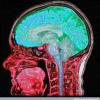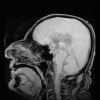Area-1255... I must ask, do you yourself have any form of ADHD? I ask, because I get the feeling that you don't and if so, you have probably missed a lot of the more recent research on this, and that research is more focused on the glutamatergic system, not the histaminergic. There's certainly a connection, since Histamine and glutamate are connected, but it doesn't appear to be a significant one.
I also get the feeling you've missed some of the key threads here on longecity regarding ADHD - the upregulating method of treatment have more or less been disproven, it only helps a very, very select few with their ADHD -problems.
Check out GetoutofBox's thread here on Longecity - he's one of the most talented amateur neuro-chemists I have ever met on the internet:
http://www.longecity...in-development/
In his thread, we explored most avenues of treatment, and came to the conclusion that the NMDA -network is altered/mutated among a huge percentage of the ADHD-suffering population - and that is also the current angle being investigated by the medical profession out there.
And considering that us ADHD-ers often have increased NMDA-activity, and common comorbid issues of allergies and asthma, I rather take issue with you suggesting Anti-histamines and NMDA as treatment for ADHD.
NMDA will most likely only worsen the problem for most of us, and Anti-histamines are completely without effect - many of us have tried many different anti-h's, as part of our treatment against allergies, and I can tell you this, not a one of us notice any improvement in attention on them - they just make you drowsy. As f*ck.
And I do believe I saw you mention increasing cAMP as a valid method of treating ADHD?? That's complete rubbish! Many, many ADHD-sufferers have naturally ELEVATED levels of cAMP in the PFC, leading to signal-distortion, and trouble with filtering out stimuli, so increasing cAMP is an incredibly stupid idea - it'll just make everything worse! Decreasing cAMP indirectly is actually one of the primary modes of effect of Intuniv ( guanfacin) as it is an Alpha-2-Agonist
ZENFOOD: These are compounds currently regarded as possible alternatives to Stimulants, check them out and make up your own mind as to which ones would benefit you.
Memantine - Is seeing rising use in the USA as treatment against ADHD, it's one of the very few compounds around that EXCLUSIVELY AGONISES THE D2-RECEPTOR. That's right. The very receptor you have an issue with.
The D2 -effect is very mild however, and the main mode of effect of Memantine is as a selective NMDA-antagonist. As you are probably aware, the NMDA-network is responsible for the communication between many centers in the brain, and helps keep the brain in balance - i.e, whenever you take a psychoactive substance such as Amphetamine, the NMDA-network takes note, and starts the process of de-regulating your Dopamine-receptors, resulting in tolerance building, and the brain keeping the same un-stimulated state, even when you take Amphetamine.
The most recent research in ADHD is showing increased NMDA -activity, possibly connected to lower levels of Kynurenic Acid in ADHD-sufferers. Kynurenic Acid is also the currently researched area of interest regarding Schizophreniacs, who have many symptoms working inversely to ADHD - HIGH Dopamine -levels, LOW NMDA activity, and sky-high levels of Kynurenic Acid.
"The Kynurenic Acid theory" for Schizophrenia is the most recent theory regarding that disease, and it links the dopamine and NMDA -theories together fairly nicely, as the NMDA -network seems to be altered among them, because of elevated Kynurenic Acid -levels, resulting in the NMDA-network failing to keep dopamine-levels in check, leading to haywire neuro-transmitters - resulting in, well... madness.
It would appear as if we ADHD-ers work in an inverted way, often less dramatically tho'. Low dopamine, high NMDA, low kynurenic acid, but not THAT much lower than the neurotypicals.
Memantine was originally intended as an Alzheimers-medication, since mutations in the metabotropic glutamate network ( which NMDA is a part of) appear to be at the root of at least part of the disease. Memantine was meant to decrease glutamate excitotoxicity, which is very high among those with Alzheimers-disease. It was found to be too weak however, it can't affect the NMDA-network enough to inhibit the toxicity, and thereby halt the disease.
However... increased NMDA-activity has been seen in a lot of other neurological disorders as well, and ADHD is one of them. The effect on ADHD was actually first noticed when it was used as treatment of Amphetamine-tolerance ( since Memantine antagonises the NMDA-receptors it also restores the effect of amphetamine and other psychoactives, by blocking the brain from blocking the effect of the drug)
And since Memantine has been shown to be effective, with a much better side-effect profile than stimulants, this then leads us to this compound...
NITRO-Memantine - this is an experimental research-chemical, currently in research for the treatment of Alzheimer. The docs really felt they were on to something with Memantine, so they gave it another whirl. By binding the memantine to a nitrate-group, they appear to have increased the effects of Memantine as an NMDA-antagonist many-fold. How many times? Hard to say, but it appears to be as much as 5-10 times. Now that's some strong stuff. The result is a chemical which can be used in smaller doses and appears to be less side-effect prown compared to Memantine, who already had a good side-effect profile. Memantine is known for causing brain-fog at incorrect doses, and can therefore be rather finicky in finding the right dose - not so with Nitromem, it's easier on the cognition when trying doses.
It also appears to affect more portions of the NMDA-network than Memantine, as recent rat-experiments show a REMARKABLE effect on autistic symptoms as well! Something which Memantine does not produce - this is of interest to us as well, since Authism Spectrum Disorders appear to be highly related to ADHD as well, it's not uncommon to have comorbid issues.
If everything pans out, Nitromemantine could be a one-shot bullet to your brain, removing your problems of ADHD, potential coordination issues, dyslexia, sensory disorders, authism-disorders, you f*cking name it.
We don't know much yet tho'... even the formulation is somewhat unknown at the time, since the company developing it has reportedly noted a clear effect on Alzheimer using a rat-model, they are keeping this one daaaamn close to the vest - they're not letting anything slip out until they're ready to cash in. If this truly works, they'll be richer than bloody Midas.
Memantine is available however, and may well be enough for many of us, we may not need as potent a chemical as Nitromemantine. Memantine has been reported to have an excellent anti-depressant effect as well, should be noted, so I definitely think you should try it - especially since it affects one of your mutated receptors DIRECTLY.
There are a few more options however, which you should check out:
Fasoracetam - the latest love-child of the Racetam-family, a high-potency variant which appears to be 10-15 times as powerful in effect as Piracetam. Fasoracetam has a very complex mode of effect, wherein it modulates cAMP, either lowering or increaseing it, depending on the situation in the brain, it seems. It also potentiates GABA and choline, leading to both an anti-depressant effect, as well as eliminating the need to suppliment with a choline-source while taking it. ( usually, racetams burn through your natural storages of choline, leading to brainfog if you don't supplement with choline - faso however, increases choline-levels on its own, meaning that you don't need to supplement - it fixes the deficiency itself! Remarkable.)
Fasoracetam is a potent Glutamate-agonist, and that appears to be its main mode of effect - however, some of the glutamate-receptors it agonises, in turn ANTAGONISES the NMDA-network! It's a very clever mode of effect. Fasoracetam was discovered to have potential therapeutic effect on ADHD very recently, via the Human Genome Project, as a Norwegian dr - Hakon Hakonarson, utilized genetic data on children with ADHD and discovered that certain portions of them have mutations within the metabotropic glutamate network, and then crossreferenced all known medical compounds that are connected to affecting those networks, and discovered that Fasoracetam was an already developed and known compound that affected glutamate -receptors.
Fasoracetam has an interesting point of convergence with Memantine here, since both of them were originally intended as treatment of Alzheimers, but found to be too weak to affect the symptoms. Coincidence? I think f***ing not.
They both affect the glutamate networks in the brain - they're both good sh*t for increasing cognition.
Fasoracetam is currently undergoing clinical trials to be used as a possible ADHD-medication and the study is almost complete - I e-mailed Hakonarson myself, and he informed me that he has found it effective for certain segments of the ADHD-population and will be publishing his findings early next year. Meanwhile, on this very forum, we have a thread where some of the members have been experimenting with Fasoracetam and reporting their findings. The results seem promising, a lot of the ones that suffer from ADHD reports significant improvement of symptoms, without the intense side-effects that stimulants give.
Intuniv ( time-released guanfacine) - A drug that is actually already a recognized and in-use medicine for treating ADHD. It works by agonising ( activating, increasing the effect of) something called the Alpha-2-adrenal receptors. These receptors are mostly located in your pre-frontal cortex, and help regulate the levels of neuro-transmitters in the PFC - they help you control your attention and behaviour. One of the ways they do this, is by decreasing the levels of cAMP in your PFC, allowing your other neuro-transmitters to reach their targets.
There's a direct correlation between the D2 -receptor which you have a mutation within, and cAMP - when the D2-receptor is activated, it actually antagonises cAMP, decreasing its levels, in order for specific signals to be translated more strongly.
May I ask which type of ADHD you have been diagnosed with? There is an interesting differentiation here, because the D4 -receptor, which is another dopamine-receptor, which is highly similar to the D2 version, has been linked to the Hypoactive version of ADHD - ADD. I myself am ADD, and my issues are primarily with motivation, not concentration. ( although I definitely have this as well. ) Much like the D2-receptor, the D4-receptor is activated by Dopamine, and then proceeds to decrease cAMP in the PFC, leading a nicely controlled and focused behaviour.
If you have mutations to any of these receptors, they may not decrease cAMP sufficiently, leading to signal-noise in the part of your brain that controls behaviour, meaning that you WON'T be able to control your behaviour, as your brain won't be able to sufficiently single out the most important signals - your attention will be going from one thing to the other constantly, unable to determine which stimuli is the most important one.
Intuniv is very effective for attention-control, and that's why it's becoming the primary weapon of choice for treating children with HYPERACTIVE adhd. It hardly affects motivation at all however, since that's not it's mode of effect - it increases focus.
Intuniv is a great addition to your methylphenidate-treatment as well, in the USA they are commonly combined, since Intuniv lowers the increased blood-pressure of methylphenidate, and meth clears up the sometimes tired feeling that Intuniv gives. Together, they synergize, removing each others weaknesses, and enhancing the strengths. I don't know if it's been cleared for use in Finland yet, but it's currently not in Sweden, where I reside... It has been scheduled for evaluation tho, and most likely it will be available in a year or two.
On a related note, there are actually other Alpha-2-agonists which have been noted to affect ADHD in a positive way, such as Cannabigerol - it is one of the compounds found in the marijuana-plant, and acts in a way nearly identical to guanfacine ( Intuniv).
This is most likely the reason why so many ADHD-ers find marijuana calming, as it somewhat clears the signal-noise in the PFC.
However... Cannabis also inhibits cognition, because of the many other psycho-active substances in it, which limits the usefulness of Cannabis in treating ADHD. Cannabigerol-levels in the strains used for drug-use is also much lower compared to other strains. The ones that seem to have the highest levels of Cannabigerol are the ones used for other, industrial purposes. If you can find a good strain of dietary hemp, and then test it for Cannabigerol-levels, then you have a pretty darn good cognitive enhancer there, and a good protein-supplement for that power-lifting as well, to BOOT! : D
In closing, feel free to check out my thread on ADHD, it's meant to be cover most aspects of the disease(s) so feel free to add your own 2 cents in there.
http://www.longecity...ception-thread/































































